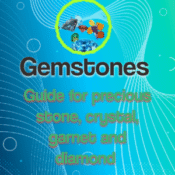“Critical Analysis of Personal Helicon by Seamus Heaney consist of introduction, definition of title, literal meaning of the poem, deeper meaning of the poem, use of imagery, use of symbols, use of Greek mythology and style.”
Introduction
This poem was first published in 1966 in the book “Death of Naturalist”. The poem is dedicated to Michael Longley who is a poet and friend of Seamus Heaney.
Definition of title
Personal:
Personal means the poet’s own life and experiences/Autobiographical elements.
Helicon:
Helicon is the name of a mountain in Greek mythology where nine muses live. The streams run down from this mountain gives the power to write poetry who drink from it, means poetic inspiration. Poet was inspired by this myth. So, the title suggest that “Personal Helicon ” means The poet’s own inspiration.
Literal meanings of the poem
In Ireland there were many wells with names of saints and poet was inspired by the wells. In his childhood he plays near the wells and watched the drawing of water with the help of bucket from wells. Wells as the way of personal reflection and understanding of natural world. Wells are doorways to underground world. Poet saw the reflection of sky in well and think it that sky trapped in a well. Now poet is older and wiser. His thirst for knowledge increases.
Deeper meaning of the poem
Well is symbol of life, inspiration and knowledge. He describes his childhood means he has many things to learn. Description of bucket and sound shows that things would be learned hardly. Drying up well shows that he has yet not seen anything. (Mysteries of life). Poet’s own reflection from the well is like the “Narcissus” in Greek mythology and the deep echo from the well is like “Echo” in Greek legends was a maiden who love Narcissus but he wrapped in himself. It means that poet is ignorant of the world around him.
The bucket and the drawing of water shows that the family and traditions he can not remove from his life. Searching water in the wells means poet wants to know who he really is (self exploration)? A rat jumped across my reflection means Some thing disturbing in him. Heaney’s phenomenon of inspiration is that some thing revealed from the mysterious and something from consciousness, the blend of these two makes his poetic inspiration.
Use of imagery
This poem is full of imagery. He used Images of wells, Water bucket, Smell of water weeds, Foxgloves, Fungus, Mulch and Rat etc. His imagery appeals to five senses.
Use of symbols
Well
In this poem the well is the symbol of life, excitement, knowledge and inspiration.
Darkness in well
Darkness in well symbolizes the mysteries of life and depth
WATER-WEEDS, fungus, mulch, foxgloves and windlasses
This natural imagery symbolizes the childhood innocence, physical sensation and consciousness.
Personal Helicon Style
This poem is consist of five quatrains about 10 syllables per line (not followed strictly it varies) with rough rhyme scheme of abab, cdcd, efef, ghgh, ijij and used simple language. He used musical devices alliteration and assonance. “Alliteration” is the repetition of similar initial consonant sounds in a phrase or line of poetry. Like “Dark drop”. And “Assonance” is the repetition of similar vowel sounds in a phrase or line of poetry. Like ” Pumps/ buckets, Fungus/ bucket plummeted, Drop/ moss, Hovered/ bottom, Rope/ so/ no, In/ brickyard/ rich, Spring/ is/ dignity and Rhyme/ myself“.
Use of Greek mythology in Personal Helicon
Helicon
Helicon in Greek mythology is a name of mountain where nine muses live.
Narcissus
Narcissus in Greek mythology is an extremely handsome but disdainful Young man who fell in love with his own reflection in a pool and suicide near one of the fountains.
Echo
Echo in Greek legends was a maiden who loved Narcissus but he wrapped in himself.
Conclusion
Personal Helicon is poet’s own inspiration from the mysteries and experiences of life.
- Read more related analysis
- Critical Analysis of Casting and Gathering by Seamus Heaney
Feels free to contact us on Facebook






